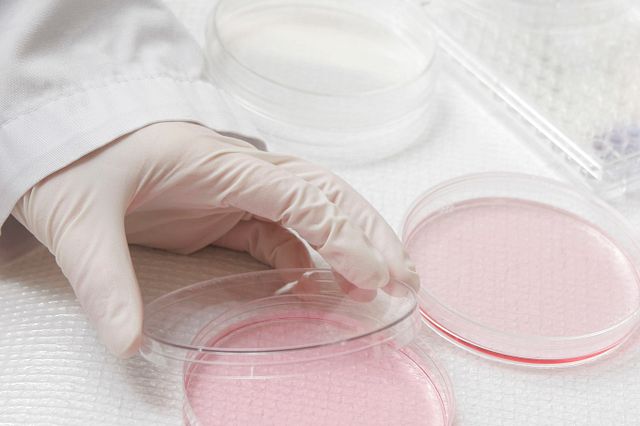ASTM F748 Selection of Tests for Biocompatibility of Medical Devices
The ASTM F748 standard provides a framework for selecting appropriate tests to evaluate the biocompatibility of medical devices. This is critical in ensuring that materials used in these devices do not cause adverse effects when interacting with human tissues, fluids, or cells.
Medical device manufacturers must demonstrate that their products are safe and effective before they can be marketed. ASTM F748 helps address this requirement by offering a structured approach to selecting biocompatibility tests based on the intended use of the medical device. This service ensures compliance with international standards, thus protecting public health.
The ASTM F748 selection process considers several factors including the specific components and materials used in the device, its mode of action within the body, as well as the anticipated duration of contact between the material and the biological system. By tailoring the test suite to these parameters, we ensure that the testing is both relevant and robust.
A key aspect of our ASTM F748 service involves working closely with clients to understand their unique product specifications. This collaboration allows us to provide customized recommendations for biocompatibility assessments tailored specifically to the intended application of each device. Our team of experts leverages deep knowledge in materials science, biology, and regulatory affairs to offer comprehensive advice.
Once selected, the appropriate tests are conducted according to strict protocols that align with ASTM F748 guidelines. These procedures encompass a range of evaluations such as cytotoxicity studies, allergy assessments, hemocompatibility evaluation, mutagenicity testing, and more depending on the nature of the device being evaluated.
The results from these tests are then analyzed in detail to determine whether they meet established acceptance criteria laid out by ASTM F748. Compliance with these standards is crucial not only for regulatory approval but also for establishing trust among healthcare providers and patients who rely on safe medical technologies.
Scope and Methodology
| Test Type | Description | Application |
|---|---|---|
| Cytotoxicity Testing (ISO 10993-5) | Evaluation of the ability of a material to cause cell death or damage. | Identifies potential toxic effects on living cells. |
| Allergen Release Studies (ASTM F748 Annex A1) | Determines whether an allergenic response can be elicited from the device material. | Prevents allergic reactions due to exposure to device components. |
| Hemocompatibility Evaluation (ISO 10993-2) | Evaluation of blood compatibility with the material. | Avoids adverse interactions between blood and device surfaces. |
| Mutagenicity Testing (OECD TG471) | Determines if a substance can cause genetic mutations in organisms. | Ensures long-term safety by preventing heritable changes. |
Customer Impact and Satisfaction
Our ASTM F748 selection of tests service plays a pivotal role in enhancing customer satisfaction through several means:
- Compliance Assurance: Ensures that all biocompatibility testing adheres to stringent international standards.
- Risk Mitigation: Identifies potential risks early on, allowing for necessary adjustments before full-scale production.
- Regulatory Approval: Facilitates smoother pathways towards obtaining regulatory approvals by demonstrating robust biocompatibility data.
- Patient Safety: Guarantees that only safe and effective devices reach the market, thereby protecting public health.
By partnering with us, customers gain access to cutting-edge facilities equipped with state-of-the-art instrumentation. Our team of experienced professionals ensures accurate data collection and interpretation which ultimately contributes to higher product quality and reliability.
Competitive Advantage and Market Impact
- First-to-Market Capability: By ensuring early compliance with ASTM F748 standards, companies can expedite their product launches into competitive markets.
- Informed Decision Making: Leveraging our expertise allows businesses to make informed decisions regarding which tests are most relevant for their specific medical devices.
- Enhanced Reputation: Demonstrating thorough adherence to biocompatibility testing enhances the reputation of both manufacturers and their products among healthcare professionals and consumers alike.





